NE ZHA 2 (2025)
After a great catastrophe, the souls of Nezha and Aobing are saved, but their bodies face ruin.
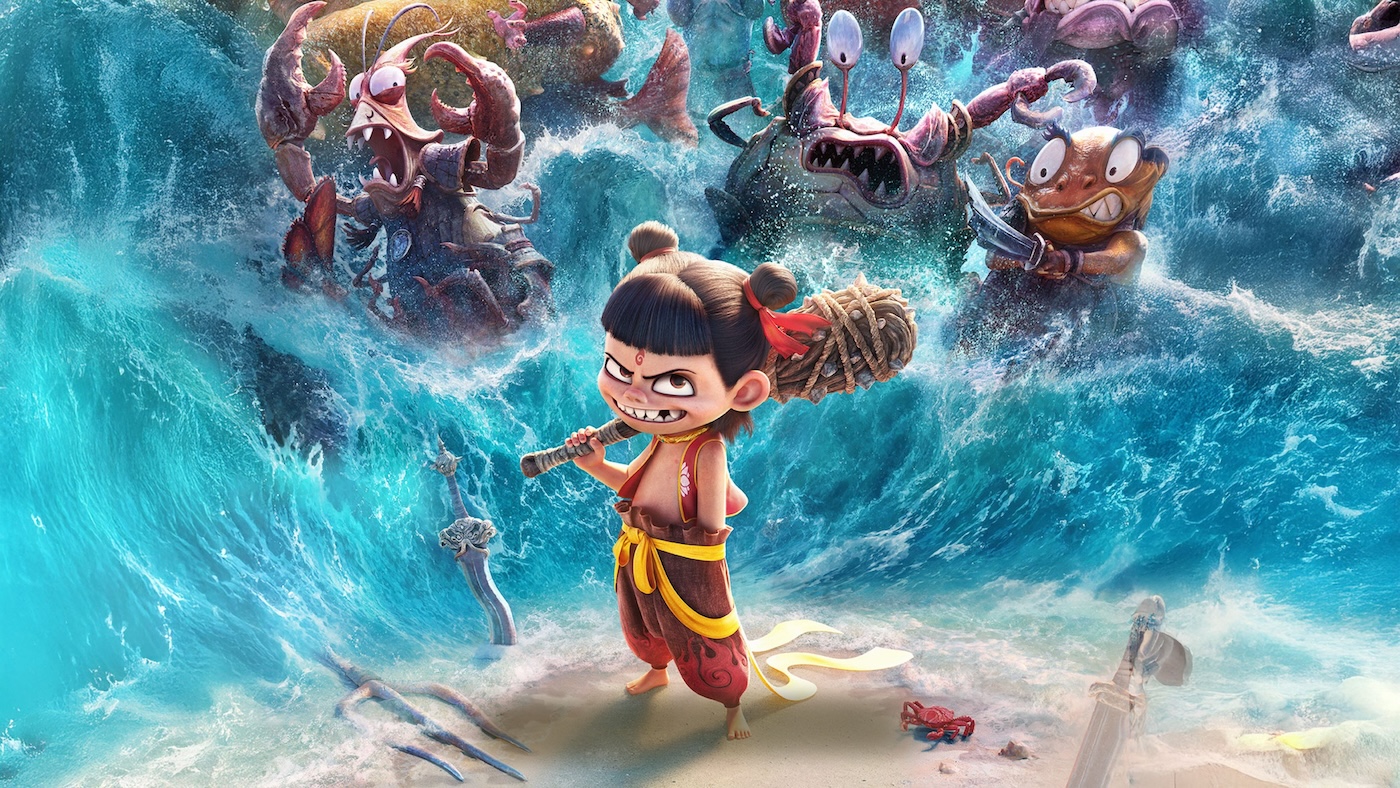
After a great catastrophe, the souls of Nezha and Aobing are saved, but their bodies face ruin.

As we approach the end of 2025, the film event of the year isn’t up for debate. Likely a surprise to many, the movie currently sitting atop the global box office is Ne Zha 2. The accolades don’t stop there. It’s become the seventh-highest-grossing film of all time, the highest-grossing animated film ever made, and it recently crossed the $2M mark at the global box office, becoming only the seventh movie to do so. The confusion those statistics might cause is understandable, as over 97% of its gross comes from Ne Zha’s home country of China. Still, those figures are too impressive to ignore. So what is it about this animated sequel that turned it into a phenomenon, and why hasn’t it resonated as strongly overseas?
Ne Zha’s roots go far deeper than the film’s 2019 predecessor. Animated retellings date back to the 1960s, but the story itself is centuries-old, pulled from enduring Chinese mythology. While it isn’t necessary to know the myth to enjoy the films, that cultural familiarity likely contributes to its native success. It also isn’t essential to see the first instalment before diving into Ne Zha 2, though context certainly helps.
Ne Zha (2019) carried an upbeat and hopeful tone, with a story simple enough for younger audiences to follow, balancing moments of violence with comic relief. But the sequel shifts gears. While it maintains a dose of the same silly humour, Ne Zha 2 is darker in tone and significantly more complex. This is a film that demands close attention—sometimes to the point of exhaustion.
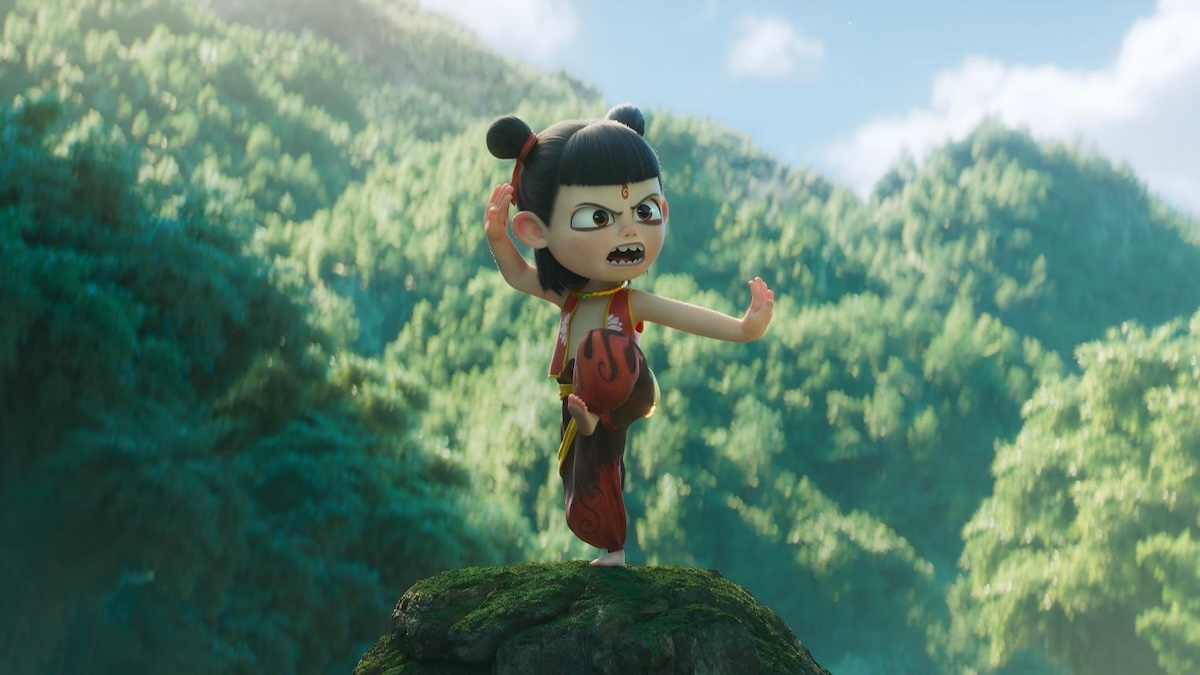
The mythology begins in the first film, when the all-powerful Chaos Pearl is split in half by the Supreme Lord of Heaven. The Spirit Pearl was to be reincarnated into Ne Zha, while the Demon Pill was meant to be destroyed within three years. But when Shen Gongbao (Yang Wei) steals the Spirit Pearl, it’s instead reborn as Ao Bing (Han Mo), son of the Dragon King, while Ne Zha (Lu Yanting) becomes the reincarnation of the Demon Pill. The two eventually meet and are forced to work together, discovering a bond that redefines their fates. The film’s message was clear: embrace who you are, not who others demand you to be.
If that sounds convoluted, it doesn’t begin to touch the complexity of Ne Zha 2. In fact, its biggest weakness is an overstuffed set-up that attempts to cram too much information into too small a space. It’s an ambitious story, but nearly overwhelming. For youngsters, the vibrant colours and lively action may be enough to carry them through, but following along with the finer details might require a notebook and pen.
The sequel picks up directly where its predecessor left off. A voiceover provides a backstory and summarises the first film’s events. While brief, it’s worth mentioning again that the lack of context provided about the first film isn’t a barrier. It might feel like it is, to those without the first part as a point of reference, any confusion’s likely shared by those who did see it!
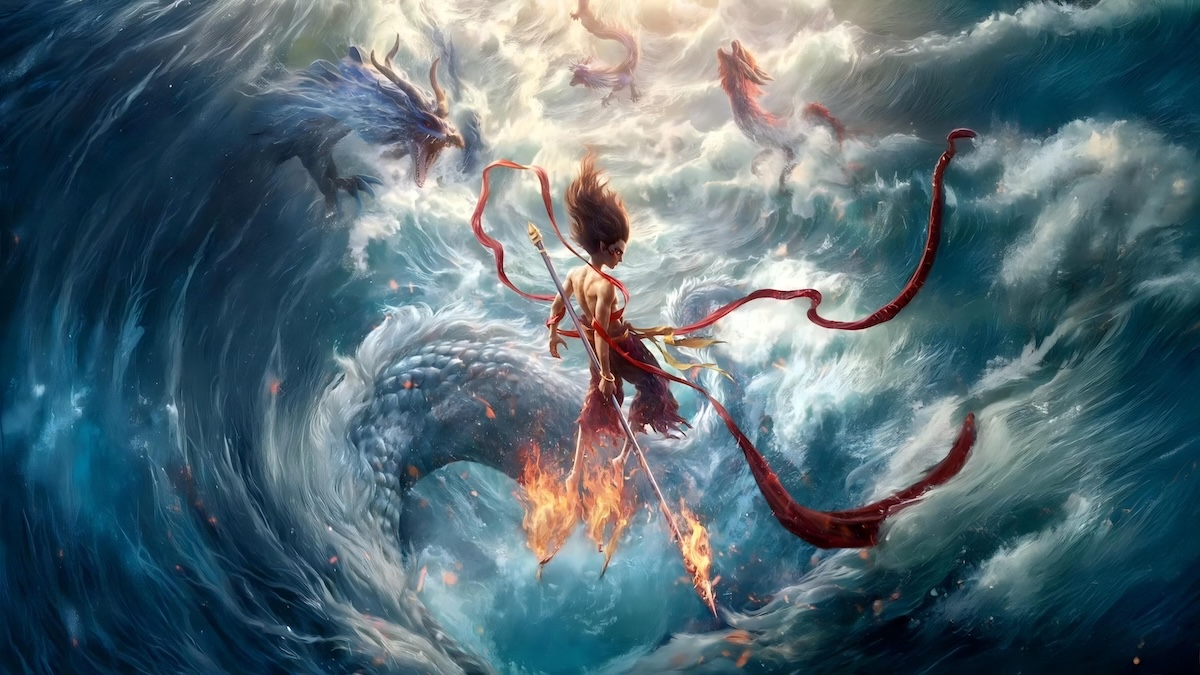
A major plot point here is that Ne Zha and Ao Bing must share the same body for much of the film as they seek an elixir to restore Ao Bing’s own body again. But it’ll only work for one week, and in order to earn the potion, they must endure the Ascension Trial. This body-sharing conceit turns out to be more than a gimmick—it underlines the film’s core message: cooperation isn’t just preferable, it’s sometimes the only way forward. It’s a lesson Ne Zha and Ao Bing can grasp easily as children, but one their elders have a much harder time with.
Chentang Pass, Ne Zha’s home village and the setting of much of the first film, gets less screen time but remains an important part of the narrative. Shen leads an invading force of demons and dragons into Chentang Pass, where they’re met with a military force led by Li Jing (Chen Hao) and Yin She (Lu Qi), Ne Zha’s parents. These two have much more interesting roles in this sequel. Where in Ne Zha they were framed as anxious parents, here they’re pushed into the heart of the conflict. They shift the parental theme from fear and control to truth, agency, and love, making them vital to the film’s emotional core. When Shen’s invasion of Chentang Pass stalls, tension between the sides simmers as Ne Zha and Ao Bing endure the trial.
If the first movie was about Ne Zha wrestling with fate and acceptance, the sequel is about him finding his sense of self and reclaiming his own identity. Sharing his body forces him to identify his own weaknesses. In the film, whenever he wants Ao Bing to take control, he has to make himself pass out completely. Understanding his own limitations while also identifying Ao Bing’s strengths is a key part of Ne Zha’s growth.
Ao Bing’s journey, on the other hand, is less about self and more about figuring out where he belongs. Raised by the Dragon King, Ao Guang (Yu Chen), Ao Bing seemed confident at first that he was on the right side of the struggle, but less so after getting to know Ne Zha in the first film and literally walking in his shoes in the second. A reveal later in the film helps to solve his dilemma.
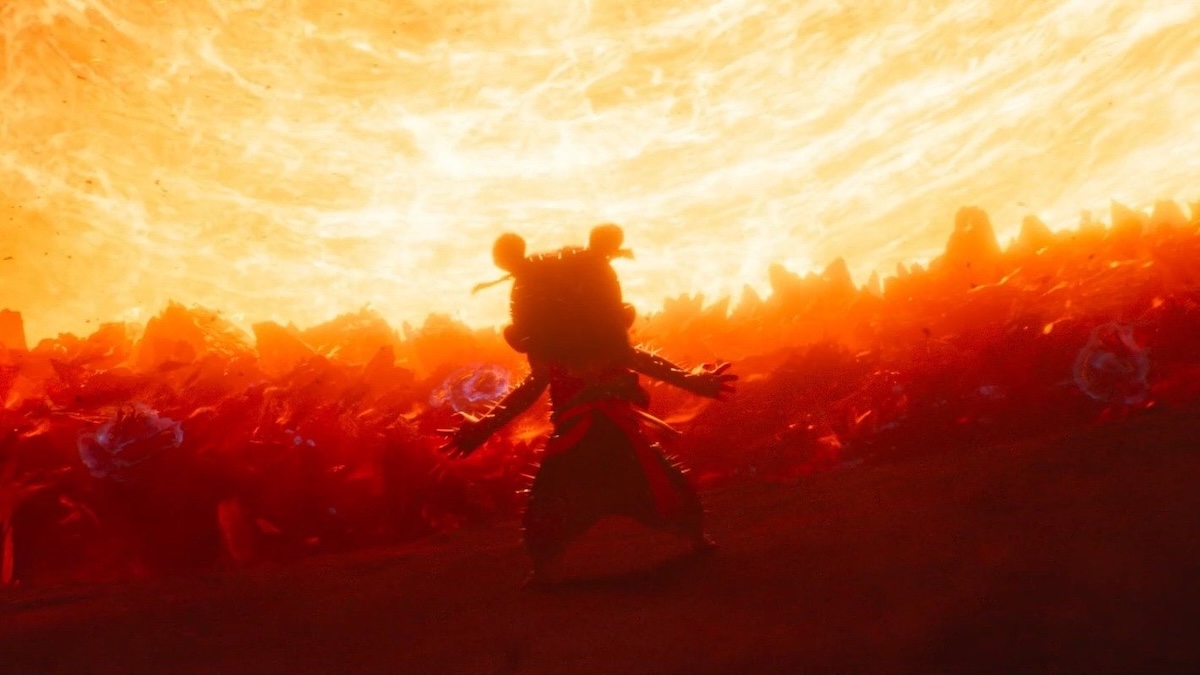
Ne Zha and Ao Bing’s trial is just one of several overlapping plot threads. There are quests for immortality, several new characters introduced, and multiple major twists. Unfortunately, this narrative ambition undercuts its characters. At nearly two and a half hours long, Ne Zha 2 gives true arcs only to its central duo. Everyone else is underdeveloped, leaving major motivations hazy. Tonal shifts also prove jarring—epic, large-scale battles crash into long dialogue-heavy stretches, and fart jokes appear in the middle of otherwise operatic storytelling.
Where Ne Zha 2 redeems itself is in its visuals. The animation is nothing short of breathtaking. One sequence in a palace of the heavens feels monumental in scale and detail, every column and arch shimmering with ornate design. Landscapes of ocean and sky are painted with an artist’s care, while climactic battle imagery—fire, smoke, the collapse of towering structures—carries visceral weight. The film also experiments with depth of field and motion, stretching sequences across the widescreen image in ways that feel both exaggerated and eerily natural. For all its flaws, it’s one of the most beautiful animated features ever made.
What ultimately makes Ne Zha 2 recommendable is its ability to balance spectacle with cultural resonance. It may stumble under the weight of its own mythology, but the central relationship between Ne Zha and Ao Bing grounds the chaos in something heartfelt and human. The film’s visual splendour is undeniable, the kind of animation that demands to be seen on the largest screen possible, and it carries a sense of ambition few modern blockbusters even attempt. Whether you come for the mythology, the artistry, or the simple thrill of seeing a Chinese animated epic dominate the global charts, Ne Zha 2 earns its place as one of 2025’s defining movie experiences.
CHINA | 2025 | 144 MINUTES | 2.39:1 | COLOUR | MANDARIN • CHINESE • ENGLISH • HINDI • SPANISH

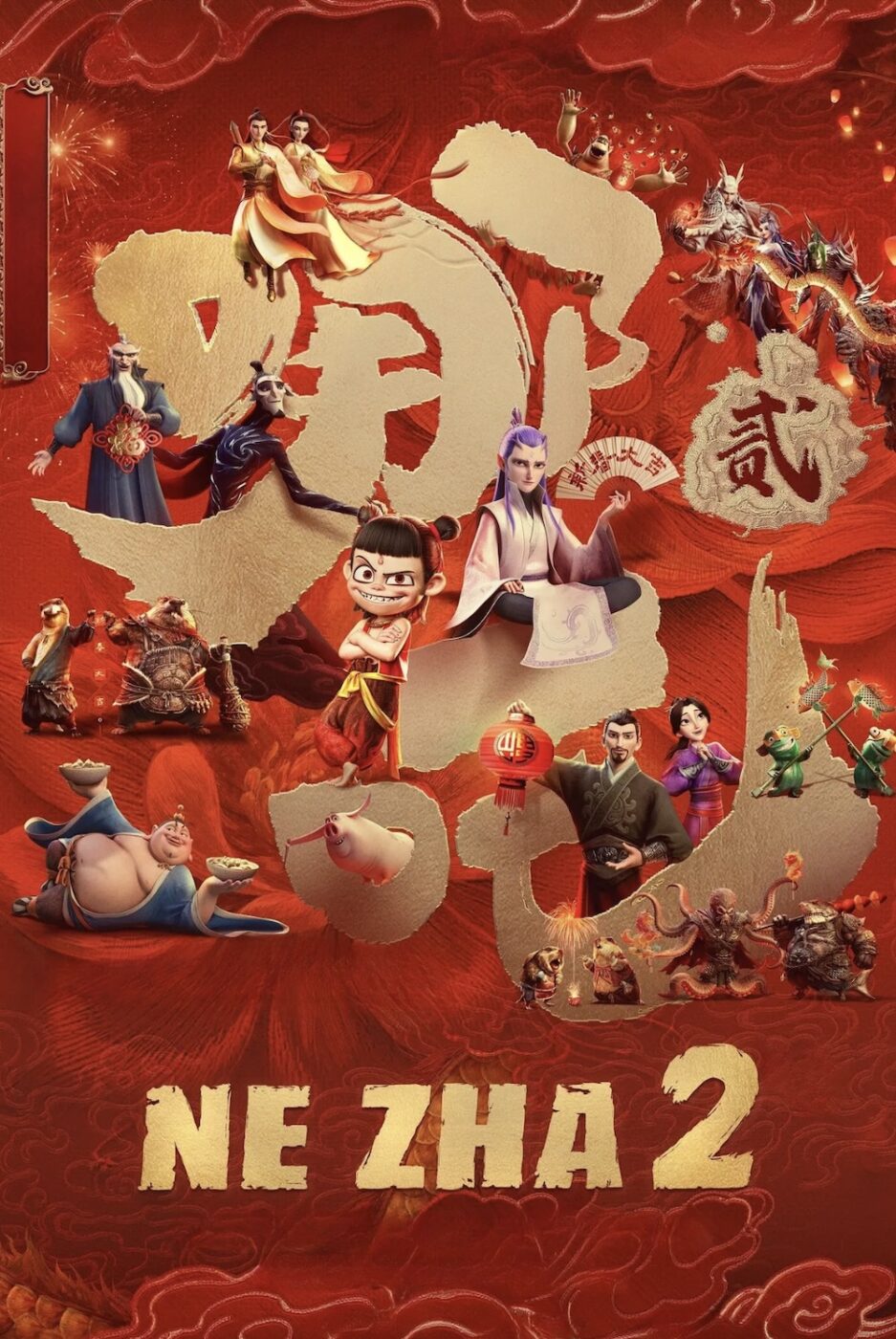
director: Jiaozi (aka Yang Yu).
writer: Jiaozi (based on ‘Investiture of the Gods’ by Xu Zhonglin).
voices: Lü Yanting, Han Mo, Lu Qi, Zhang Jiaming, Wang Deshun & Zhuo Yongxi.
